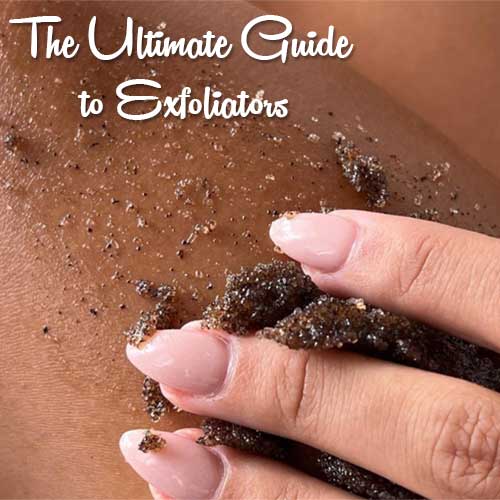Exfoliation is a crucial step in any skincare routine, helping to reveal smoother, brighter, and healthier-looking skin. However, with the myriad of options available, choosing the right exfoliator can be overwhelming. This comprehensive guide will explore the world of exfoliators, their benefits, and how to select the perfect one for your skin type.
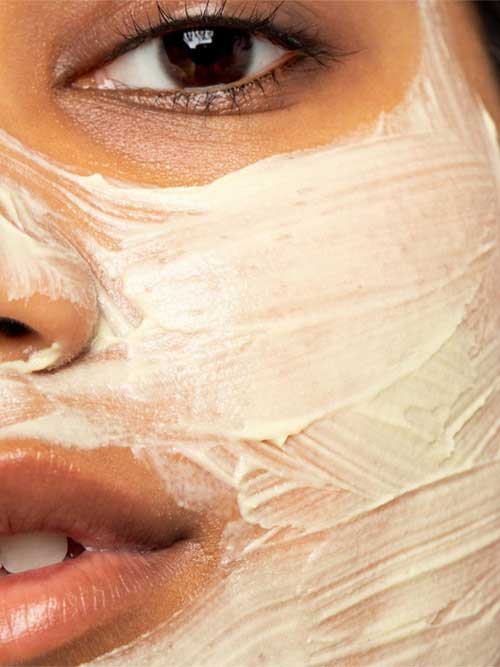
Types of Exfoliators
Physical Exfoliators
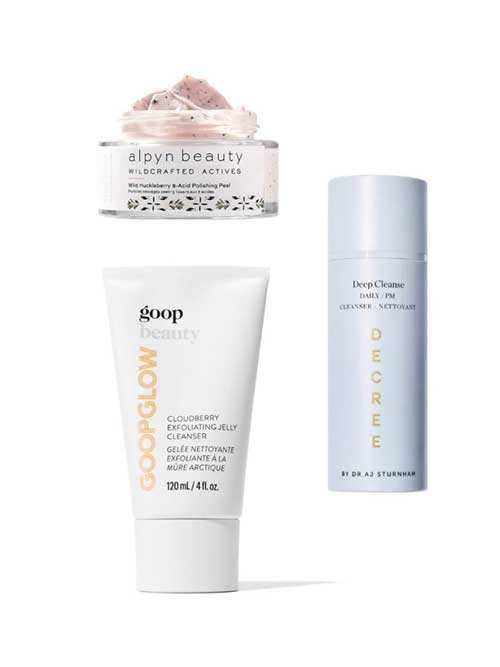
Physical exfoliators, also known as mechanical exfoliators, work by physically removing dead skin cells from the surface of your skin. These products typically contain small particles or granules that, when massaged into the skin, help to slough off dead cells.
Pros:
- Immediate results
- Can be effective for removing stubborn dead skin
Cons:
- May be too harsh for sensitive skin
- Can cause micro-tears if used too aggressively
Chemical Exfoliators
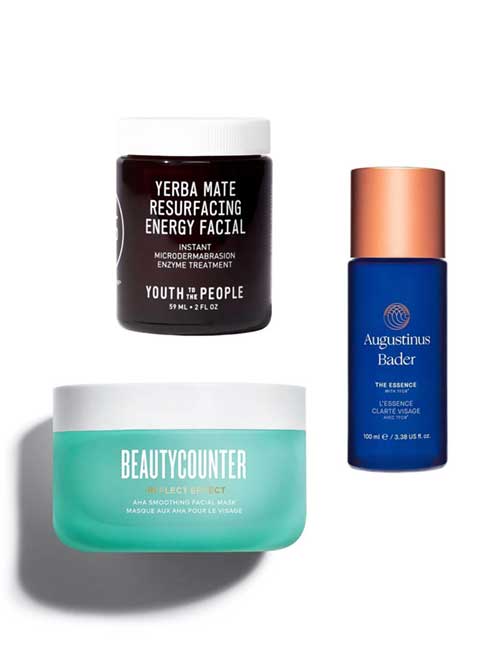
Chemical exfoliators work by employing acids or enzymes to break down the connections holding dead skin cells together, making it simple to wash them away. These are generally gentler on the skin and can penetrate deeper than physical exfoliators.
Types of Chemical Exfoliators:
- Alpha Hydroxy Acids (AHAs):
- Glycolic Acid
- Lactic Acid
- Mandelic Acid
- Beta Hydroxy Acids (BHAs):
- Salicylic Acid
- Polyhydroxy Acids (PHAs):
- Gluconolactone
- Enzyme Exfoliants:
- Papain (from papaya)
- Bromelain (from pineapple)
Benefits of Exfoliation

Consistent exfoliation provides a wide range of advantages for your skin, including:
- Improved skin texture
- Brighter complexion
- Unclogged pores
- Reduced appearance of fine lines and wrinkles
- Enhanced absorption of other skincare products
- Stimulated cell turnover
Selecting the Ideal Exfoliator Based on Your Skin Type
Sensitive Skin
For sensitive skin, gentle exfoliators are key. Look for products containing PHAs or enzyme exfoliants, as these are typically the mildest options. The Cetaphil Healthy Radiance PHA Cleanser is an excellent choice for sensitive skin, as it uses polyhydroxy acids to gently dissolve dead skin cells without causing irritation.
Dry Skin
If you have dry skin, opt for gentle chemical exfoliators with hydrating ingredients. AHAs like lactic acid or mandelic acid can be beneficial, as they also help to attract moisture to the skin. The Paula’s Choice Skin Perfecting 6% Mandelic Acid + 2% Lactic Acid Liquid Exfoliant is a great option for dry skin types.
Oily or Acne-Prone Skin
For oily or acne-prone skin, look for exfoliators containing salicylic acid (BHA) or glycolic acid (AHA). These ingredients can penetrate pores and help control excess oil production. The Ordinary AHA 30% + BHA 2% Exfoliating Peeling Solution is an effective choice for combating acne and unclogging pores.
Combination Skin
Those with combination skin can benefit from a mix of gentle exfoliators. Consider using a PHA-based product on more sensitive areas and an AHA or BHA on oilier zones. The Dr. Dennis Gross Skincare Alpha Beta Universal Daily Peel offers a balanced blend of AHAs and BHAs suitable for combination skin.
Mature Skin
For mature skin, look for exfoliators with AHAs like glycolic acid to help improve skin texture and reduce the appearance of fine lines. The Hyper Skin Hyper Even Fade and Glow AHA Mask is an excellent choice for addressing hyperpigmentation and signs of aging.
How to Use Exfoliators Safely
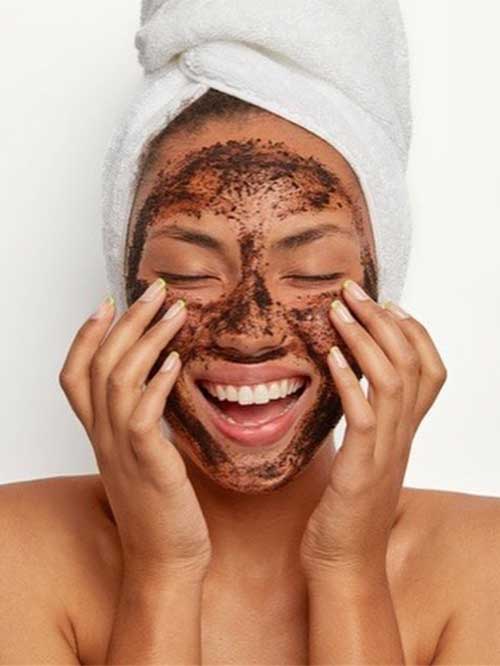
- Start slowly: Begin by using your exfoliator once or twice a week, gradually increasing frequency as your skin adjusts.
- Be gentle: When using physical exfoliators, apply light pressure and use circular motions.
- Don’t overdo it: Over-exfoliation can lead to irritation and damage your skin barrier.
- Follow with moisturizer: Always apply a hydrating moisturizer after exfoliating to replenish your skin.
- Use sunscreen: Exfoliation can make your skin more sensitive to UV rays, so always apply sunscreen during the day.
The Rise of Gentle Exfoliators
In recent years, there has been a growing trend towards gentler exfoliation methods. This shift is particularly beneficial for those with sensitive skin or those prone to irritation. Gentle exfoliators, such as enzyme-based products or those containing PHAs, offer effective exfoliation without the risk of micro-tears or excessive irritation.
Enzyme exfoliants, for example, work by breaking down the proteins in dead skin cells, making them easier to remove. These gentle exfoliants are particularly suitable for sensitive skin and can provide benefits such as improved skin texture, brighter complexion, and clearer skin with fewer breakouts.
Conclusion
Exfoliation is a powerful tool in your skincare arsenal, capable of transforming your complexion when done correctly. By understanding your skin type and choosing the right exfoliator, you can achieve smoother, brighter, and healthier-looking skin. Remember, gentle exfoliants can be just as effective as stronger options, especially for those with sensitive skin. Always listen to your skin and adjust your exfoliation routine as needed to maintain a healthy, glowing complexion.
